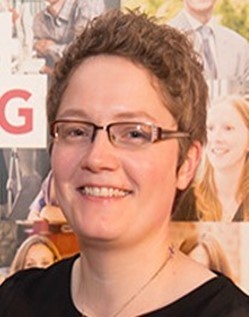Ruth Hunter

Professor of Public and Planetary Health, Centre for Public Health
School of Medicine, Dentistry and Biomedical Sciences
Email | Research Portal | Orcid | Twitter
Prof. Ruth Hunter is a Professor in Public Health at the Centre for Public Health. My research has focused on the built environment, urban health and NCD prevention. I have particular expertise in urban green space interventions, natural experiment evaluations, and complexity science methods including systems thinking, agent-based modelling, and social and stakeholder network analysis. I have been PI and Co-I on grant funding totalling over £7million. This includes the lead applicant on a personal fellowship from the NIHR Career Development Fellowship on social network interventions for health behaviour change (£421k). Most recently, I have led an application to the UKRI-NHMRC to undertake a study which aims to generate new evidence from the application of new, accessible tools related to the intersection of urban design and health, understanding and estimating the improvements in NCD and health inequalities that can be achieved through tangible alteration in urban design (£900k). Another recently funded study by the MRC investigates interventions to reduce car dependency in Belfast. My previous work includes investigating the public health impact of large scale natural experiments such as the Connswater Community Greenway and the 20mph speed limit interventions in Belfast. I was a member of the expert panel on urban green space interventions that led to the following outputs (WHO, 2017a; WHO, 2017b; Hunter et al, 2019). I act as an expert consultant for both the WHO European Centre for Environment and Health (Bonn, Germany) and WHO Europe NCD Office (Moscow, Russia), and an associate editor at the International Journal for Behavioral Nutrition and Physical Activity, and a member of the NIHR Public Health Research funding panel.
My work aligns with the aims of the Centre in the following ways: i) a focus on health inequalities; ii) interdisciplinary working; iii) focus on improving the environment for improved urban and planetary health.







